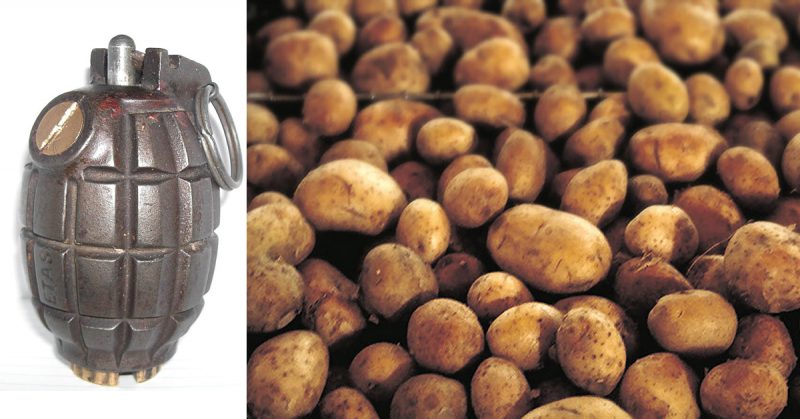The owner of “Frenchie Burgers” in La Fléche, a hamburger restaurant, got a nasty shock recently while peeling potatoes. Reaching into the sack for more potatoes, he pulled out one that seemed heavier. After examining it with the co-owner of the restaurant, and they realized that it was the grenade.
They immediately phoned the Gendarmes to find out what they should with it. Initially, the Gendarmes were skeptical, and the hapless restaurant owners had to convince them that it wasn’t a hoax. Eventually convinced that it was the real deal, the Gendarmes asked for a photo of the grenade and advised that they place the grenade under a bucket in the back yard.
The gendarmes then sent the picture to bomb disposal experts, who identified the device as a British grenade from WWII. They added that it appeared to have been defused, and probably posed no serious threat. It took the disposal unit ten days to come and collect the grenade, all the while it sat under that bucket in the back yard of the restaurant.
The sack of potatoes came from a farm in the north of France. Unexploded ordnance is frequently found in France, especially in the north where Allied planes dropped tons of bombs on German troops. The area was also the scene of some of the most intense back and forth trench warfare of the First World War, which saw heavy use of artillery bombardment on a daily basis. An estimated one ton of explosives was fired for every square meter of territory on the Western front, and as many as a third of shells did not detonate.
Every year, French farmers plowing their fields unearth vast amounts of unexploded ordnance, bullets, barbed wire, shrapnel and another scrap – this is known as “The Iron Harvest.”
